IBM 40K1043 (73 GB)$79.00 to $315.00
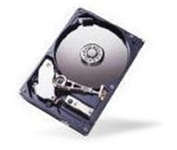
High performance and reliability, a winning data storage solution. Designed specifically to meet the needs of your advanced, data-intensive applications, IBM hard disk drives provide users with a wide range of capacities and interfaces for nearly every data-intensive application.
Manufacturer:IBM Product MPN MPN | 40K1043 | Key Features Capacity | 73 GB | Spindle Speed | 15000 RPM | Technical Features External Data Transfer Rate | 300 MBps | Seek Time | 3.5 ms | Buffer Size | 8 MB | Average Latency | 2 ms | Interface (Detailed) | SAS | Hot Swap | Yes | Other Features Platform | PC | Package Qty. | 1 | Warranty Warranty | 1 Year | Miscellaneous UPC | 5050689883987 |
Tags:ibm, 40k1043, 73, gb,
| Hewlett Packard PV943UT (500 GB)$139.00 to $230.00
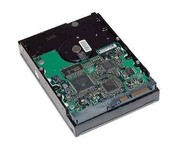
Serial ATA Hard Drives maximize the performance of HP Workstations by providing the technologies to meet your increasing storage demands. These high-capacity drives offer superior reliability and performance.
Manufacturer:Hewlett Packard Product MPN MPN | PV943UT | Key Features Designation | Desktop Computer | Capacity | 500 GB | Interface | Serial ATA | Enclosure | Internal | HDD Form Factor | 3.5" x 1/3H (Low Profile) | Spindle Speed | 7200 RPM | Technical Features External Data Transfer Rate | 300 MBps | Seek Time | 20 ms | Buffer Size | 16 MB | Average Latency | 4.17 ms | Interface (Detailed) | Serial ATA | Other Features Platform | PC | Package Qty. | 1 | Warranty Warranty | 1 Year | Miscellaneous UPC | 882780713451 |
Tags:hewlett, packard, pv943ut, 500, gb,
| Seagate Barracuda 7200.9 (160 GB)$55.00 to $200.00
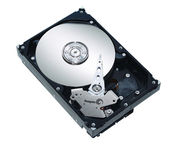
Barracuda 7200.9 is a member of the Seagate 3.5-inch family of high-capacity desktop drives targeted at mainstream and high-performance PCs and advanced storage applications. The product enables OEMs and system builders to qualify one family of drives from a premier provider for a wide range of storage applications.
Manufacturer:Seagate Product MPN MPN | ST3160812A | Key Features Designation | Desktop Computer | Capacity | 160 GB | Interface | IDE/EIDE | Enclosure | Internal | HDD Form Factor | 3.5" x 1/3H (Low Profile) | Spindle Speed | 7200 RPM | Technical Features External Data Transfer Rate | 100 MBps | Seek Time | 8.5 ms | Buffer Size | 8 MB | Average Latency | 4.17 ms | Interface (Detailed) | DMA/ATA-100 (Ultra) | Hot Swap | Yes | Sound Emission | 28 dB | Other Features Platform | PC | Package Qty. | 1 | Dimensions Height | 1 in. | Warranty Warranty | 5 Years | Miscellaneous Release Date | Q3, 2005 | UPC | 763649002308 |
Tags:seagate, barracuda, 7200.9, 160, gb,
|
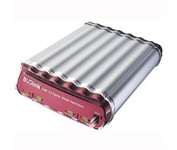
Buslink's 3.5 inch desktop hard drives feature high capacities and provide USB 2.0. Pre-formatting saves time and assures 100% quality control. All Buslink external desktop hard drives feature a metal alloy case that dissipates heat. AC adapter, Connecting cables and drivers included.
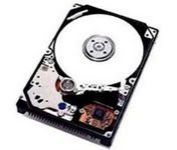
Designed specifically to meet the needs of your advanced, data-intensive applications, IBM hard disk drives provide users with a wide range of capacities and interfaces for nearly every data-intensive application.
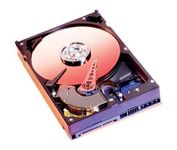
Cool, quiet operation, superior performance and industry-leading reliability make these SATA drives ideal for desktop, business, and consumer electronics storage.
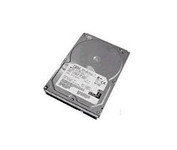
The IBM (39M4514) 500 GB SATA Hard Drive is fully compatible with PC systems. Offering capacity as large as 500 GB






